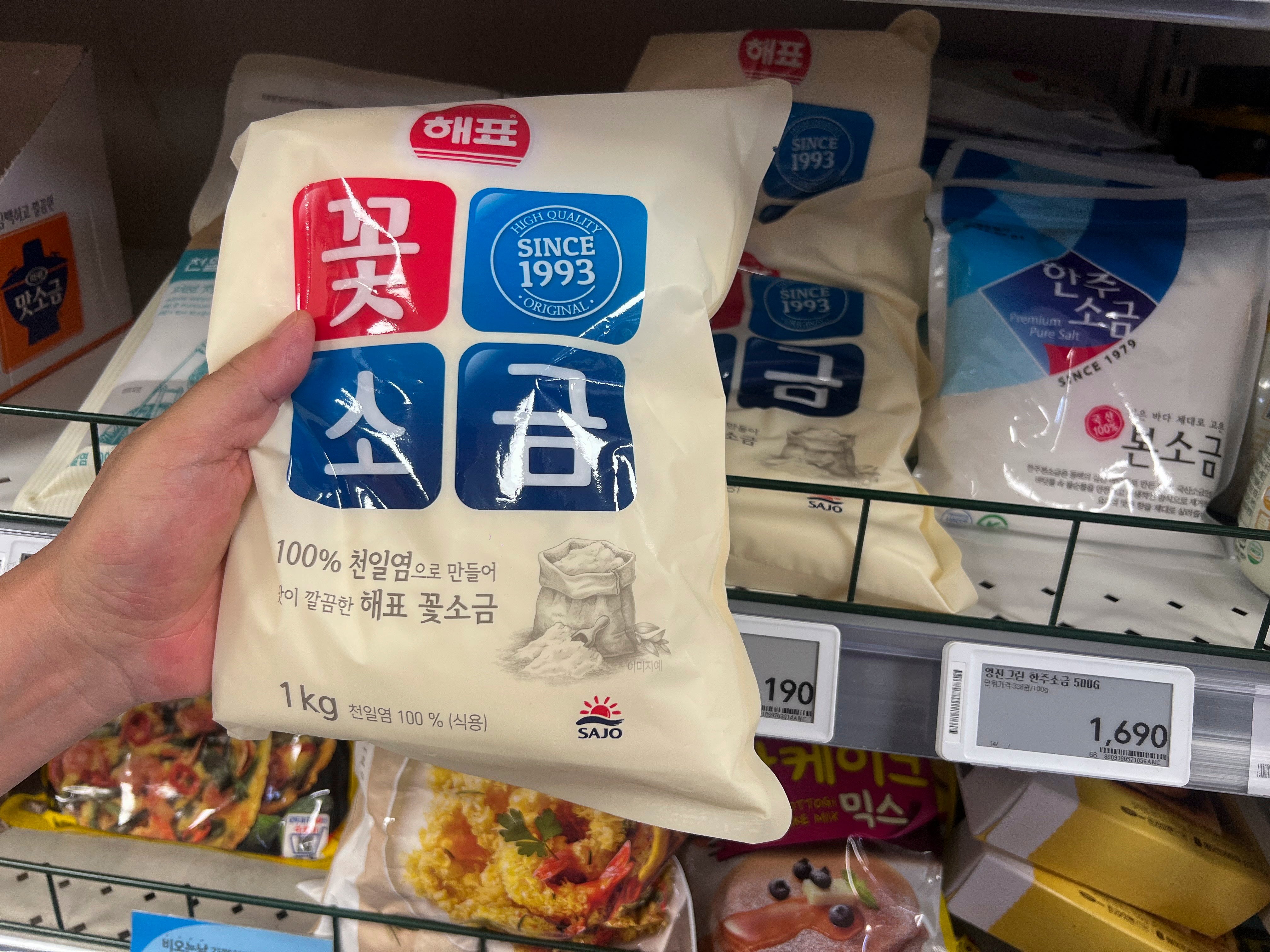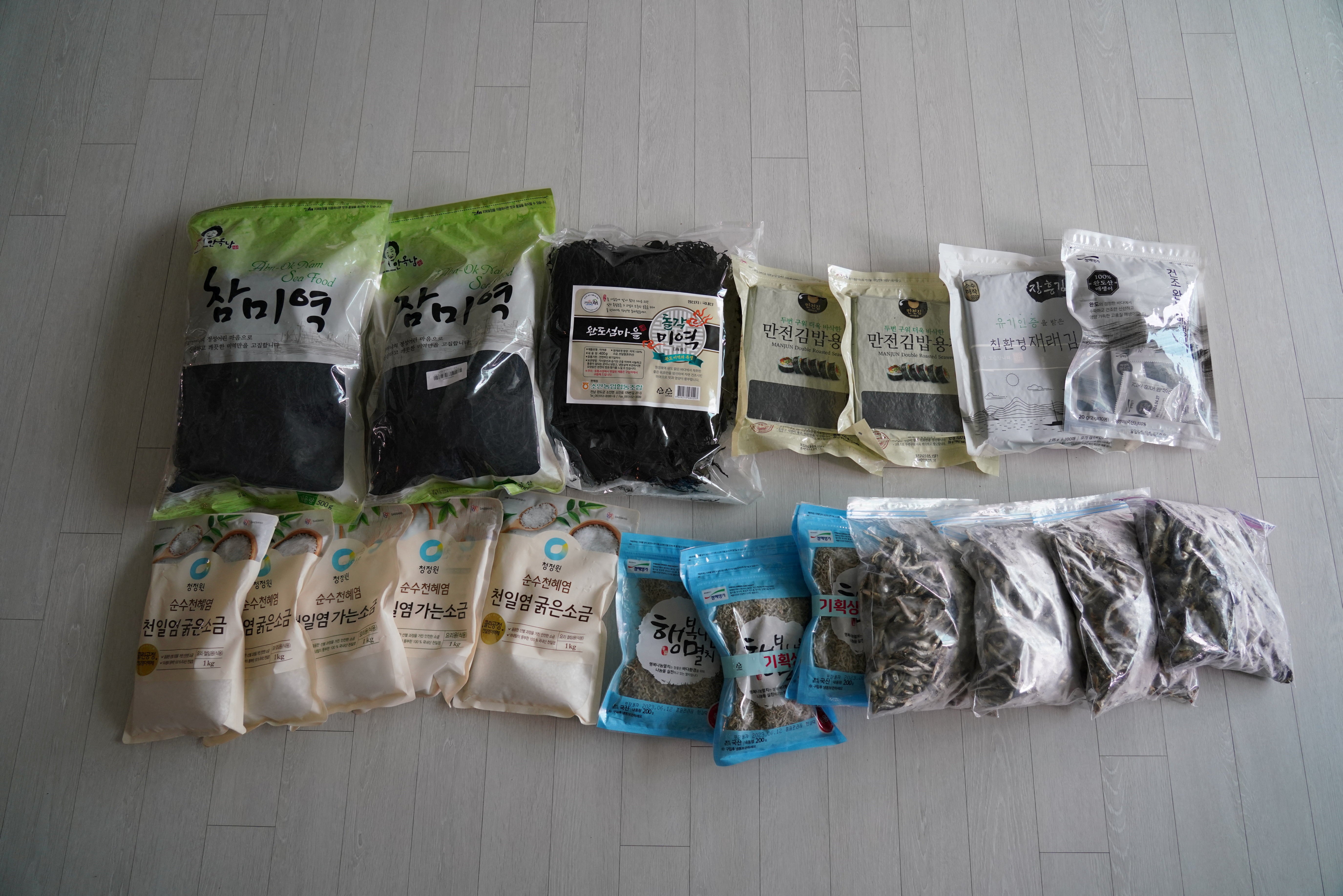Why South Koreans are rushing to stockpile salt
Surge in demand contributes to a 27% rise in the price of salt in South Korea

South Koreans have begun to hoard excessive amounts of sea salt and other items as Japan prepares to dump treated radioactive water from the Fukushima power plant into the ocean.
Japan is set to release more than 1 million metric tons of water into the Pacific that was used to cool damaged reactors at the power plant north of Tokyo, after it was hit by an earthquake and tsunami in 2011.
Tokyo has repeatedly assured that the water is safe and has been filtered to remove most isotopes though it does contain traces of tritium, an isotope of hydrogen hard to separate from water.
Although Japan has not set a date for the release, the announcement has made fishermen and shoppers across the region apprehensive.
South Korea's fisheries authorities have vowed to ramp up efforts to monitor natural salt farms for any rise in radioactive substances and maintain a ban on seafood from the waters near Fukushima.
"I recently bought five kilograms of salt," Lee Young-min, a 38-year-old mother of two children, said, adding that she had never bought so much salt before.
"As a mother raising two children, I can't just sit back and do nothing. I want to feed them safely," she told Reuters.
The panic buying has led to a 27 per cent rise in the price of salt in South Korea in June from two months ago, though officials say the weather and lower production were also to blame.
The Korean government in response has decided to release about 50 metric tons of salt a day from stocks, at a 20 per cent discount from market prices, until 11 July.
"I worry the release of wastewater could not only pollute (the ocean) and lead to health problems but also raise salt and seafood prices," Park Young-sil, a 67-year-old woman said as she shopped at a traditional market in Seoul.

More than 85 per cent of the South Korean public oppose Japan’s plan, according to a survey last month by local pollster Research View. Seven in 10 people reportedly said that they would consume less seafood if the waste water release goes ahead.
Hyun Yong-gil, an owner of a wholesale salt store in the capital, told Reuters earlier this month that sales have risen "40 to 50 per cent" despite soaring prices.
"We are getting more customers than usual lately and many of them seem worried about the planned wastewater release," he said.
But packets of salts are fast disappearing from market shelves.
"I came to buy salt but there's none left," said 73-year-old Kim Myung-ok. "There was none the last time I came too."
China has condemned the move to release wastewater, accusing Japan of a lack of transparency and saying it poses a threat to the marine environment and the health of people around the world.
Japan says it has provided detailed and science-backed explanations of its plan to neighbours.
Japanese chief cabinet secretary Hirokazu Matsuno said last week Japan was seeing increasing understanding on the issue though that was not so apparent in Seoul shops this week.
Rafael Mariano Grossi, the director-general of the International Atomic Energy Agency (IAEA) said, "the method Japan has chosen is both technically feasible and in line with international practice."
Mr Grossi is scheduled to visit Japan next week to meet with Japanese leaders and see final preparations for the release of treated radioactive wastewater.



Join our commenting forum
Join thought-provoking conversations, follow other Independent readers and see their replies
Comments